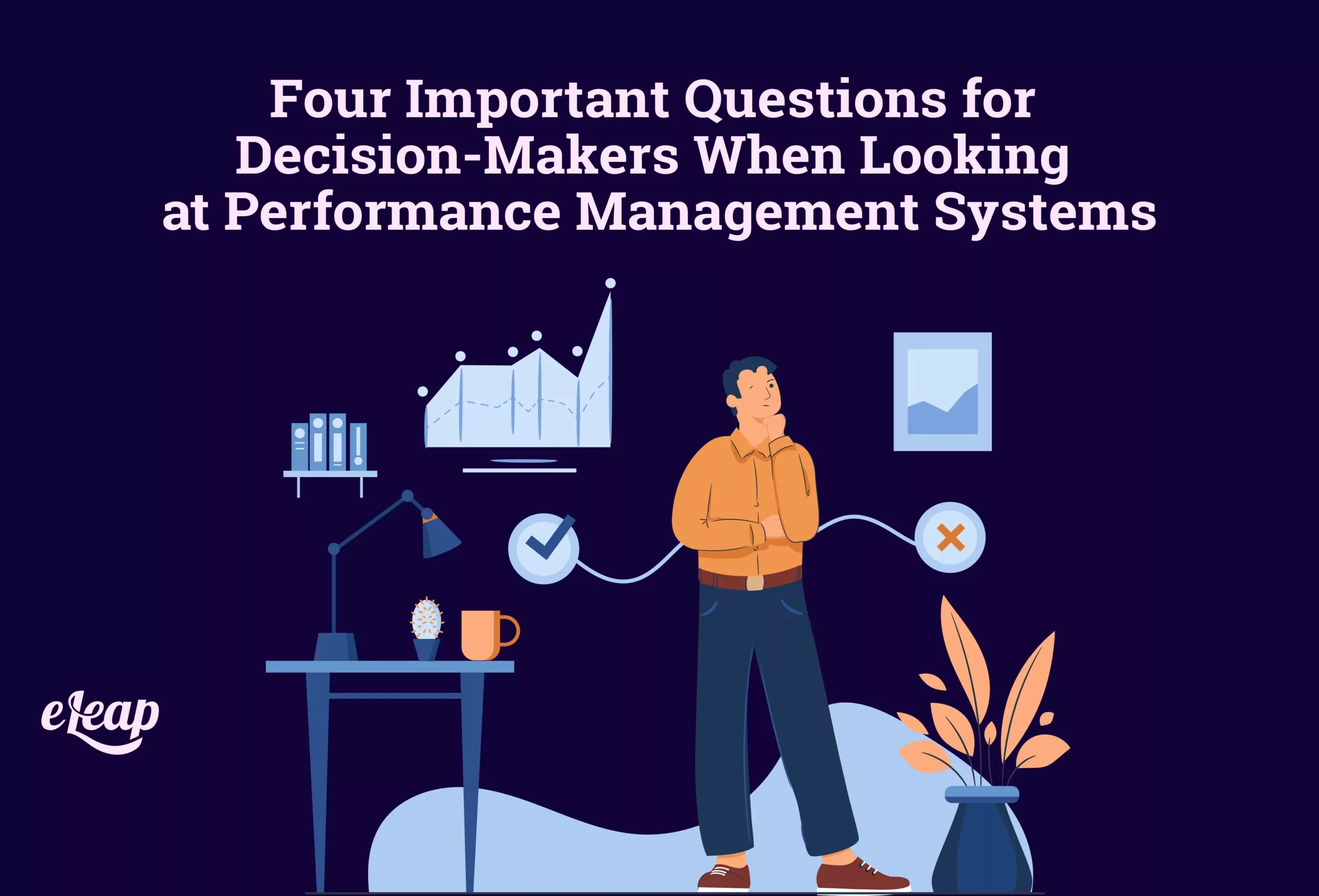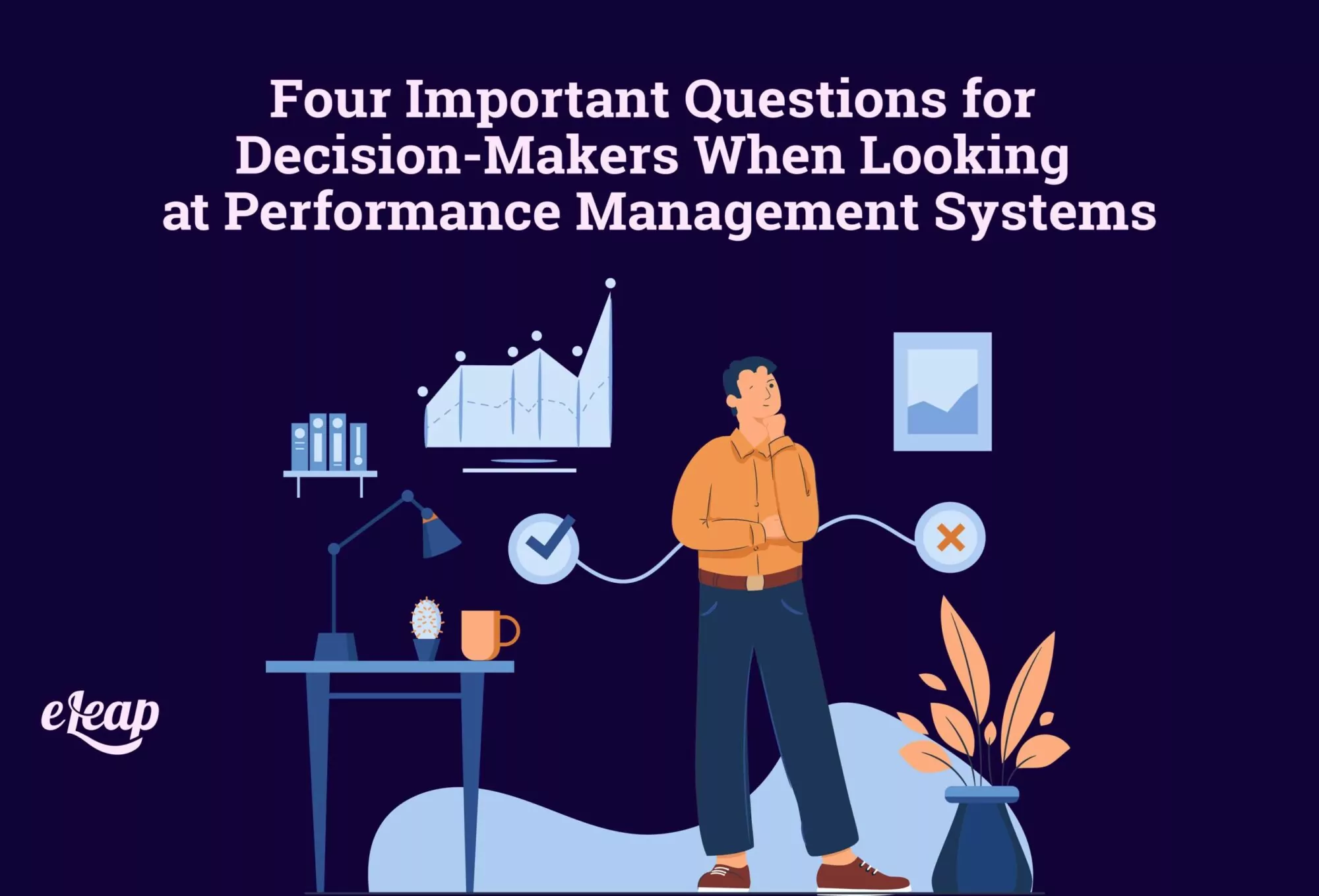Four Important Questions for Decision-Makers When Looking at Performance Management Systems

CEOs and managers in charge of PMS setup and execution often find themselves fighting an uphill battle to get employees on board. They fear that providing feedback or having honest discussions could damage relationships, cause employees to feel unvalued, or even cause people to leave the company. Fortunately, when they’re handled properly, performance management systems can help support your organization’s efforts in creating and fostering the development of solid teams.
To ensure that an organization’s PMS is effective and capable of delivering the results that people want, there are four big questions that CEOs and other leaders can ask.

What Is the Purpose of Our Organization’s PMS?
In most organizations, the performance management system is responsible for employee development and employee decision-making. These are related, but also require their own elements to be properly managed. In the case of decision-making, a PMS will be used to determine the basis for promotions or pay increases, transfers, or even reductions in the workforce. The PMS being used for development allows the information to guide training, mentoring, upskilling, and other development within the organization.
Although it’s plausible that you can have a single PMS that handles all aspects of development and decision-making, it’s not that common. You’ll generally find that you have separate tools that work toward each of these means. Fortunately, when you invest in the right performance management platforms and tools, you’ll ensure that you deliver on every aspect of your purpose.
How Can We Make Sure the PMS Works?
Before even getting to the PMS, organizations need to ensure that a commitment to performance management culture is present from upper management and on down through the ranks. The teams may need some education as to why performance management has a critical role in the success of an organization and how their roles play into that, as well. Your performance management system also needs to be aligned with other HR initiatives and systems within the organization, and competencies that are set should be the same used for training, staffing, and onboarding. This ensures consistency throughout the stages of their career.
It also sends a strong message that your organization takes pride in being a performance culture. Collaboration and two-way communication are critical to getting buy-in from the upper management and the lower-level executives alike. Supervisors need to be trained on evaluations and how to conduct them effectively. Most importantly, companies will need to understand how continuous reviews will ensure that the PMS is reaching its desired goals.
Does Our Process for Performance Management Support Organizational Goals and Objectives?
One way that you can guarantee that your PMS is aligned with organizational objectives and goals is to use a competency model. Competency models are designed to provide an articulation of the abilities, knowledge, characteristics, and skills that are important to organizational goals. These generally include a variety of factors that are associated with overall success: interpersonal factors, technical factors, and leadership factors.
Organizations need to define competencies based on behavioral performance and expectations, allowing employees to have a better idea of what is expected of them. Management also benefits by having uniform standards for employee evaluation, which increases their capability of being fair, transparent, and consistent in their reviews.
Would Our PMS Live Up to a Legal Challenge?
If an employee is not pleased with their experience in the PMS, or if another situation arises where there is a legal challenge regarding an employee’s performance, you want to make sure that you have all of the right tools and resources in place. Employees need to be rated on elements relevant to their specific job role and they need to be informed of expectations, standards, and potential outcomes or consequences of not achieving the set goals and expectations.
Managers also need to be held accountable for delivering performance information to employees in a timely and professional manner. Evaluations should be reviewed by others in leadership roles and an appeals process should be in place for employees who disagree with any element of their evaluations. Decisions made from the PMS and performance evaluations also need to be consistent to hold substance with the legal system.
How Employees Feel about Performance Management
Currently, most employees and organizational team members feel that they have a dedicated performance management system that helps improve their personal and professional expertise. Having a PMS that generates clear goals, ensures honest feedback, and embraces technology to streamline learning and development is important.
Employees want better performance management solutions. Right now, the focus is on creating the best culture, and performance management is an integral part of that culture. Choosing a PMS that helps you set organizational goals and deliver proper performance management tracking and support will ensure that your employees feel like they are getting the development and training solutions that they need. Most employees that have been surveyed or even asked informally have reported that they would appreciate a company that offered a more inclusive, collaborative PMS and performance management process and that they would feel more a part of the organization if they were included in the process instead of just handed a review periodically.
The Bottom Line
Organizations that have an effective, reliable PMS will have delivered expectations, increased productivity, and plenty of value-added benefits. It can also help align the culture and employee behavior with business needs, as well. Having a well-executed, personalized, legally compliant PMS is a critical element in your talent management and ensuring that your organization is delivering the best performance on all levels. A solid performance management system will also provide consistent, reliable insights for team members and ensure that no one is left wondering where they stand.
Take advantage of modern performance management solutions, including the tools and resources available from eLeaP. The eLeaP continuous performance management system provides organizations with powerful options to attract and retain high caliber team members.